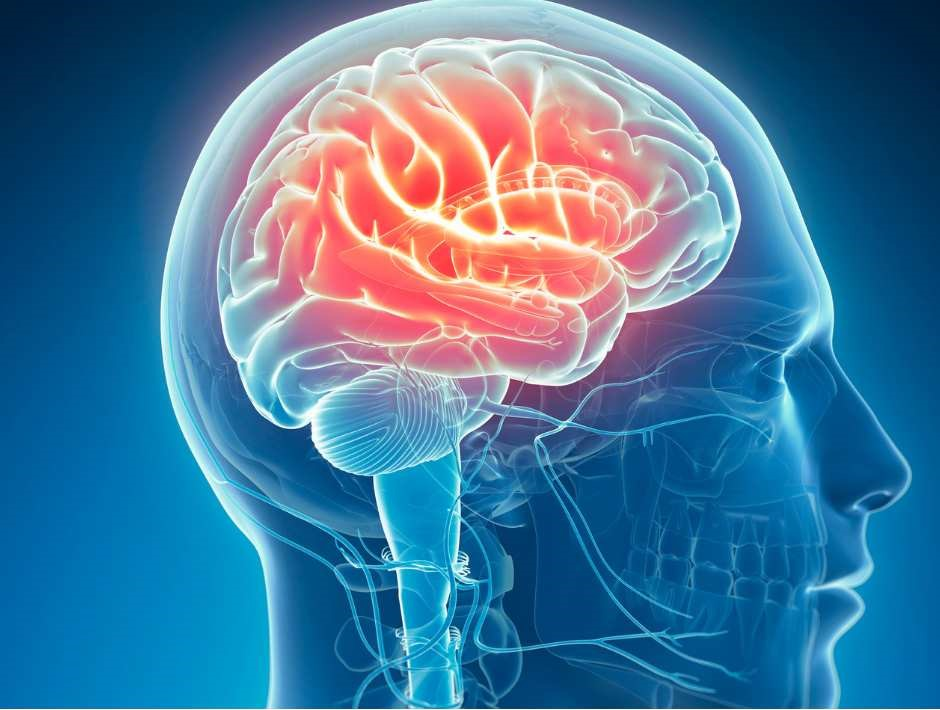Overcoming A Sudden Difficulty Finding Words When Speaking
If you're encountering sudden difficulty finding words when speaking, it's natural to be worried. Trouble with word retrieval could stem from benign or severe reasons.
We'll outline common triggers and provide actionable tactics to combat this perplexing issue. We'll signal when these speech hiccups suggest a more profound medical concern.
Key Takeaways
Anomia is a condition that causes difficulty recalling words or names, commonly affecting individuals with neurological disorders, and emotional states such as stress and anxiety can exacerbate these challenges.
Understanding the differences between expressive aphasia, which affects broader language abilities, and anomia, which is limited to word retrieval, is key to developing effective management strategies.
Practical strategies for improving word-finding include deep breathing exercises, mindfulness practices, positive self-talk, and taking breaks, alongside adapting communication methods and environments to facilitate easier interaction.
Understanding Sudden Word Retrieval Challenges
Identifying the Triggers for Transient Word-Finding Problems
When Words Fail: Six Types of Aphasia
Speech and Language Therapy for Anomia
Beyond Therapy: Embracing Everyday Opportunities
Frequently Asked Questions About Word-finding
Connected Speech Pathology: Bridging the Gap in Word Retrieval
Understanding Sudden Word Retrieval Challenges
Anomia, or word-finding difficulty, is a communication disorder characterized by difficulty recalling words or names for objects. While having trouble thinking of the words you want to say can be a universal experience, it is more common among individuals with neurological disorders. Imagine knowing the object and its use, but the name eludes you.
The emotions associated with anomia can vary from person to person, with some feeling frustrated, embarrassed, or confused. Despite this, staying calm can aid in word retrieval, indicating the influence of emotional states in language processing. So, how do we differentiate between various types of aphasia and anomia? We'll explore this in the subsequent section.
Aphasia vs. Anomia
Aphasia symptoms usually involve more profound deficits than anomia, including difficulty with word recall, non-fluent speech, and trouble forming complete sentences.
On the other hand, anomia is limited explicitly to challenges in word retrieval, particularly significant nouns and verbs, which can lead to frustration and difficulties in spoken and written language.
Recognizing these differences equips us to devise strategies that more effectively tackle these challenges.
Benign Word-Finding Problems
While transient word-finding difficulties are certainly an annoyance, it's important to note they often fall within regular, age-related changes or temporary fluctuations in cognitive function. These "tip-of-the-tongue" moments, as they're aptly nicknamed, occur to everyone and typically resolve quickly without intervention. Stress, fatigue, and emotional states can also contribute to fleeting word retrieval challenges.
When Symptoms Indicate a Serious Condition
When do word-finding difficulties indicate a severe condition? Sudden difficulty with word finding, particularly if speech becomes non-fluent and effortful, may signal an underlying serious neurological condition like stroke or brain injury. Neurological disorders can also cause aphasia and word-finding troubles.
Aphasia is most commonly caused by a stroke or brain injury affecting the left side of the brain. This impairment can lead to difficulties in speaking, understanding language, and reading or writing, which are some of the symptoms of aphasia. If you experience difficulty finding words alongside symptoms like sudden numbness, trouble seeing, or severe headache, seek immediate medical evaluation. Your word-finding issues may be due to:
brain tumor or brain damage
infection
degenerative brain diseases
Identifying the underlying cause of anomia requires professional evaluation, as it can signify various neurological conditions, medication side effects, or even early signs of dementia.
Early diagnosis and appropriate intervention can make a significant difference in managing the condition and potentially mitigating its progression. Remember, addressing concerns promptly empowers you to understand the true nature of your difficulties and access the most effective support available.
Identifying the Triggers for Transient Word-Finding Problems
Identifying the triggers for word-finding difficulties is the first step toward effective management. Factors like hydration, energy levels, and emotional states can affect our cognitive functions, including language processing. But physical states aren't the only triggers. Other common triggers include:
Stress and anxiety
Lack of sleep
Medications
Aging
You can better manage and improve your word-finding abilities by identifying and addressing these triggers.
We will further explore how stress, anxiety, and neurological disorders play a role in the brain and nervous system in the ensuing sections.
Stress and Anxiety Impact
Stress and anxiety can be significant triggers for word-finding difficulties. When stress levels are high, our brains enter a 'fight or flight' mode, during which resources are redirected away from complex cognitive tasks such as language production. Chronic stress can even lead to structural changes in the brain regions associated with speech and language, affecting our ability to quickly articulate thoughts and recall words.
Moreover, individuals with anxiety disorders may struggle to construct coherent sentences, leading to pauses and speech disruptions.
Lack of Sleep's Interfering Shadow
While fatigue is a familiar foe, its impact on language function often goes unnoticed. Inadequate sleep disrupts cognitive processes such as memory consolidation, attention, and information processing. This translates to difficulties retrieving stored words and forming coherent sentences.
Chronic sleep deprivation can further exacerbate these difficulties, leading to an increased risk of word-finding problems and even impacting overall communication skills.
Medications: A Double-Edged Sword
Medications, while essential for treating various conditions, can sometimes come with unintended side effects, including cognitive impairment. Some medications, such as antidepressants and anti-anxiety drugs, can affect the brain's neurotransmitters, impacting memory, attention, and language processing.
This can manifest as word-finding difficulties, slowed speech, or difficulty forming complete sentences. It's crucial to be aware of potential side effects and discuss them with your healthcare provider, who can adjust medication dosages or suggest alternative options to minimize cognitive impact.
Aging: A Natural Process, Not a Determinant
It's natural to experience occasional word-finding difficulties as we age. As cognitive functions decline, memory retrieval and processing speed can slow down. However, it's important to distinguish between age-related changes and potential neurological concerns.
While some degree of word-finding difficulty is expected with aging, a sudden onset of severe or persistent problems warrants professional evaluation to rule out underlying conditions like dementia or aphasia.
By acknowledging and addressing these potential triggers, individuals experiencing word-finding difficulties can take proactive steps to improve their communication skills and overall well-being. Early identification and intervention are crucial to managing these challenges and maintaining optimal cognitive function.
When Words Fail: Six Types of Aphasia
Aphasia can involve various speech patterns, from functional language skills to severe impairment, with word retrieval issues being a common element. Individuals with aphasia may produce unrecognizable words, affecting their ability to be understood. They may also write sentences that do not make sense, reflecting similar difficulties in language production during speech.
Wernike's Aphasia: The Hidden Challenges of Comprehension Difficulty
Wernike's aphasia is a type of fluent aphasia. It may seem similar to anomia in its surface presentation. Both Wernike's aphasia and anomia involve difficulty with word choice, but the underlying mechanisms and consequences diverge significantly. In fluent aphasia, people may use the wrong words instead of the intended word.
Anomia primarily impacts word retrieval, leaving sentence structure and fluency intact. In contrast, fluent aphasia is a type of receptive aphasia. It affects the processing of language comprehension. This leads to the production of lengthy, grammatically correct sentences, but often devoid of meaning due to the inclusion of irrelevant or invented words.
Fluent aphasia can create significant communication barriers as the speaker struggles to understand spoken language and may be unaware of the nonsensical nature of their own speech.
Broca's Aphasia: Struggle for Words
Non-fluent aphasia, such as Broca's aphasia, involves speaking in short, effortful phrases, often with omitted small words, though comprehension of other's speech remains relatively good. Non-fluent aphasia severely limits a person's speech to short utterances, reduces their vocabulary, and makes sound formation and writing difficult.
People with aphasia, particularly those with non-fluent aphasia, may speak in short or incomplete sentences, showcasing the difficulty in constructing speech.
Conduction Aphasia: Repeating Without Reconnecting
Conduction aphasia presents a unique challenge in the realm of language disorders. Individuals with this condition retain relatively fluent speech and comprehension. However, a crucial disconnect disrupts their ability to repeat spoken words or phrases.
While the individual understands and intends to repeat the message, the signal gets lost in transit, leading to fragmented or inaccurate reproductions. This can significantly hinder communication, making even simple conversations a struggle.
Anomic Aphasia: The Elusive Name Game
Anomic aphasia, often called "word-finding difficulty," poses a specific challenge within the broader spectrum of language disorders. While vocabulary comprehension remains intact, retrieving the right words simultaneously becomes a hurdle. It's like knowing exactly what you want to say, but the specific word stubbornly eludes your grasp. This can lead to frustration, circumlocution (using overly descriptive phrases), and even social anxiety.
The cause of anomia often lies in damage to the temporal lobe, specifically areas responsible for accessing and storing word representations. While not as severe as other aphasias, it can significantly impact communication and daily life.
Primary Progressive Aphasia: Gradual Decline
Primary progressive aphasia (PPA) is a neurodegenerative disease characterized by the gradual and progressive decline of language abilities. Unlike other forms of aphasia caused by stroke or head injury, PPA is not the result of a sudden event but rather a slow and steady deterioration of the brain regions responsible for language processing. This insidious progression can be incredibly frustrating and isolating for individuals diagnosed with PP as they watch their ability to communicate gradually diminish.
There are three main subtypes of PPA, each with distinct characteristics: non-fluent/agrammatic, semantic, and logopenic. The non-fluent variant shares similarities with Broca's aphasia, causing difficulties in forming complete sentences and speaking fluently. The semantic variant impacts understanding the meaning of words and objects, while the logopenic variant primarily affects word retrieval and expression.
While early symptoms may be subtle, such as forgetting the names of familiar objects or struggling to express thoughts clearly, PPA can eventually lead to significant communication challenges, impacting daily life and social interactions.
Global Aphasia: A Profound Disruption
Global aphasia is the most severe form of language impairment, characterized by profound difficulties with speaking, understanding, reading, and writing. Imagine a world where once effortlessly flowing language becomes a distant echo. This is the reality faced by individuals with global aphasia, often resulting from extensive damage to the dominant hemisphere of the brain.
While the severity varies, communication becomes a significant challenge. Expressing even simple thoughts or needs can be incredibly difficult, and spoken language comprehension is often severely impaired. This can lead to isolation, frustration, and dependence on others for daily activities.
Speech and Language Therapy for Anomia
Speech and language therapy is vital in managing anomia, offering individuals a roadmap to regaining control over their communication. Recognizing the frustration and social impact of word-finding difficulties, therapists employ various evidence-based techniques to address this challenge.
Targeting Word Retrieval: Techniques like Semantic Feature Analysis (SFA) and Verb Network Strengthening Treatment (VNeST) offer structured approaches to improve word retrieval. SFA helps individuals identify and associate critical features of objects or actions, strengthening the connection between the concept and its label.
VNeST, on the other hand, focuses on enhancing neural pathways associated with verbs through targeted practice and visual cues. These techniques, and others like cuing hierarchies and phonological therapy, empower individuals to access the words they need, fostering smoother communication and reducing frustration.
Beyond Word Retrieval: Cognitive Skills Enhancement: Speech therapy goes beyond simply targeting word retrieval. Recognizing the interconnected nature of language and cognitive processes, therapists may incorporate activities to enhance overall thinking skills. This could involve tasks like:
Dual-task training: Engaging in activities that require simultaneous attention to language and another task, like naming objects while walking, can improve cognitive flexibility and processing speed.
Executive function exercises: Activities targeting planning, organization, and problem-solving can indirectly benefit communication by improving cognitive resources for language processing.
Memory strategies: Techniques like mnemonics and visualization can enhance memory recall, facilitating the retrieval of stored vocabulary and improving overall communication efficiency.
Remember, therapy is a collaborative journey. Open communication with your therapist is crucial to identifying and addressing your needs and goals. By actively participating in therapy and employing these strategies, individuals with anomia can regain confidence and control over their communication, enhancing their quality of life and reconnecting with the world around them.
Beyond Therapy: Embracing Everyday Opportunities
While speech therapy provides a structured framework, individual efforts can significantly contribute to improvement. Engaging with various texts, from newspapers and books to online articles, exposes you to different language contexts and enriches your vocabulary. Additionally, participating in conversations and social interactions provides opportunities to practice word retrieval and reinforce language skills in real-world settings.
Remember, even simple steps can have a profound impact. Engaging with language through reading, conversation, and even word games can stimulate neural pathways and enhance word retrieval. By actively embracing these opportunities and collaborating with your speech therapist, you can empower your communication skills and navigate the world with newfound confidence.
Now, we will review specific strategies for communication that you can work on right away. These include:
Offering synonyms or related words
Utilizing communication apps or technology aids
Asking for clarification or rephrased questions
Using descriptive phrases instead of specific words
Offer synonyms or related words
Offering synonyms or related words can help keep the conversation flowing when the right word eludes you. For instance, if the precise term "communication" is elusive, one might use related phrases like "conversation" or "delivery" to maintain the flow of dialogue.
This strategy can help ensure that the essence of the conversation is retained, even if the exact words are not.
Utilize communication apps or technology aids (if applicable)
In today's digital age, technology can play a significant role in improving communication. Programs like Constant Therapy are designed for individuals with word-finding difficulties, offering strategies and exercises to improve verbal expression. The app includes features like Naming Practice and Describe, which provide cues to assist users in saying words and exploring words at a deeper level, respectively.
Ask for clarification or rephrased questions
Don't hesitate to ask for clarification or rephrase questions when words escape you. Expressing a lack of understanding, such as using phrases like "I'm sorry, but I'm not sure that I understand" or asking for more information or an example, can help ensure you follow the conversation correctly.
Use descriptive phrases instead of specific words
Using descriptive phrases instead of specific words can be another effective strategy when words are elusive. For instance, if you're having trouble recalling the word "elephant," you might describe it as "a large, gray animal with big ears and a long trunk." This way, you can still convey your thoughts effectively, even when the exact word is hard to recall.
Techniques for navigating conversations when words are elusive
Lastly, having a few methods handy for navigating conversations when words are elusive can be beneficial. These might include noting key points before a conversation, taking frequent breaks, or using non-verbal communication like gestures or images to aid understanding.
Remember, communication is more than just words – it's about effectively conveying your thoughts and feelings through various means, including written words.
Adapting Your Environment
Your environment can also play a significant role in easing communication. Simple steps like turning off televisions, muting phone notifications, and closing doors or windows can dramatically minimize environmental distractions by reducing background noise.
We'll investigate how adapting to your environment facilitates more accessible communication.
Creating a Supportive Space
Creating a comfortable and private space can encourage open conversation without fear of being overheard or interrupted. Incorporating comfortable seating and warm lighting can foster an inviting, relaxed atmosphere, supporting more accessible communication.
Ensuring privacy helps individuals feel secure and more open to conversation without the concern of being overheard or interrupted.
Strategies for Social Situations
Navigating social situations can be challenging when dealing with word-finding difficulties. However, strategies like carrying a small card that informs others of the communication difficulty can help ensure patience and understanding from others.
Establishing a signal with friends and family that denotes the need for a pause in conversation allows individuals to manage the pace of social interactions.
Frequently Asked Questions About Word-finding
1. Why am I fumbling my words suddenly?
If you're feeling tired or stressed, it can affect your ability to find the right words. Consider getting some rest or reducing stress to improve your speech.
2. How do stress and anxiety impact word-finding?
Stress and anxiety can affect cognitive processes, such as memory and attention, impacting language abilities and word retrieval. This can lead to difficulty finding the right words to express oneself effectively.
3. What is the difference between fluent and non-fluent aphasia?
The main difference between fluent and non-fluent aphasia is that fluent aphasia results in long, nonsensical sentences. In contrast,e non-fluent aphasia involves using short, effortful phrases with omitted small words. Understanding this difference is crucial in assessing and treating individuals with aphasia.
4. How can I improve my word retrieval?
To improve word retrieval, try deep breathing exercises, mindfulness practices, taking breaks, and positive self-talk. These strategies can help bring calmness and enhance communication. For more information and support, consider contacting the National Aphasia Association.
Connected Speech Pathology: Bridging the Gap in Word Retrieval
In today's tech-driven world, Connected Speech Pathology offers a promising solution for individuals struggling with word retrieval difficulties. This innovative approach leverages online platforms to deliver personalized therapy sessions from anywhere, eliminating geographical barriers and providing convenient access to qualified speech-language pathologists (SLPs).
Our speech-language pathologists create dynamic and engaging sessions that address word retrieval within the context of everyday situations. Role-playing exercises, simulated conversations, and real-time feedback empower individuals to practice retrieving words from infrequently encountered scenarios, promoting functional communication skills in their daily lives.
Our therapists are trained in cutting-edge techniques like Semantic Feature Analysis and Verb Network Strengthening Treatment, tailored to unlock your vocabulary and strengthen neural pathways. They're not just tech-savvy clinician but empathetic individuals who understand the frustration and impact of word-finding difficulties. If you are interested in improving your communication, contact us today.
Summary
In conclusion, while word-finding difficulties can be challenging and frustrating, understanding their triggers and types can help manage them effectively. There are many ways to improve word retrieval, whether through practical strategies like deep breathing or mindfulness or communication strategies like synonyms.
Speech and language therapy can provide professional guidance, and adapting your environment can create a supportive space for more accessible communication. Remember, communication is more than just words. You can overcome these challenges and communicate effectively with patience, understanding, and practical strategies.
About the Author
Allison Geller is a communication coach, speech-language pathologist, and founder of Connected Speech Pathology, an international online practice providing professional communication coaching and speech therapy for children, teens, and adults. With more than two decades of experience, she has worked in medical and educational settings, published research on aphasia, and leads a team of specialists helping clients improve skills in public speaking, vocal presence, accent clarity, articulation, language, fluency, and interpersonal communication.










